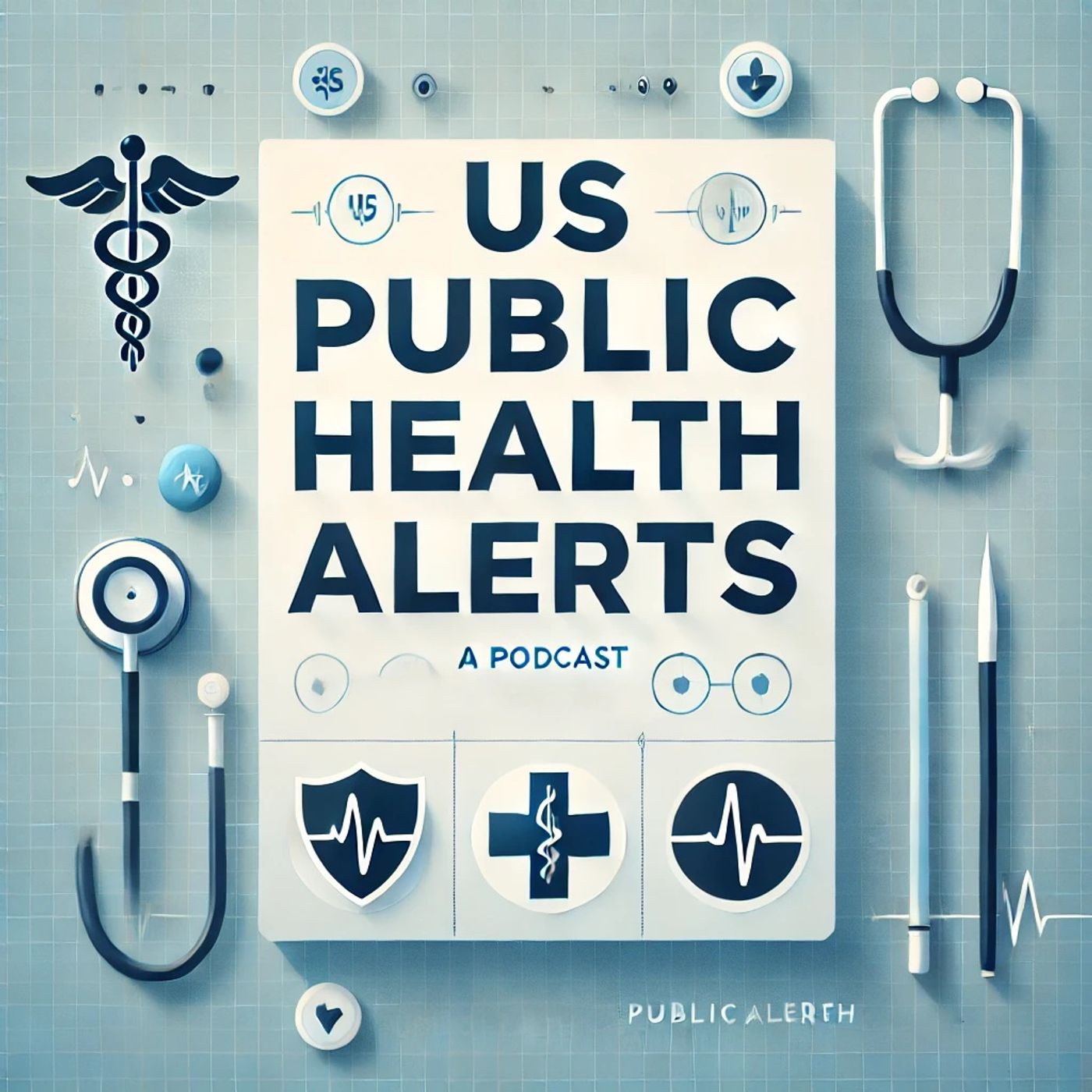Feb 02 2025 4 mins
As of February 2, 2025, public health alerts in the United States highlight various concerns addressing both persistent and emergent health threats. One primary focus is the seasonal surge in influenza cases, which has seen an uptick as is common during the winter months. The Centers for Disease Control and Prevention (CDC) continues to urge the public to get vaccinated, noting that this year's vaccine formulations are well-matched to circulating strains, including Influenza A and B. Listening to such advisories and taking preventive measures like vaccination, frequent handwashing, and staying home when sick are key to minimizing transmission.
In parallel, the United States is keeping a vigilant eye on COVID-19, as variants continue to evolve. Although the overall situation remains more stable compared to the peak periods of the pandemic, health authorities remind everyone of the importance of updated vaccinations, including the latest boosters designed to target recent variants. Public health facilities report having sufficient supplies of antiviral medications, testing kits, and personal protective equipment to manage localized outbreaks effectively.
The CDC has also issued warnings regarding a recent outbreak of Norovirus in several states. Norovirus is a highly contagious virus that causes gastroenteritis, leading to symptoms such as vomiting, diarrhea, and stomach cramping. While usually self-limiting, it can be particularly hazardous for vulnerable populations like the elderly and those with weakened immune systems. Proper hygiene, especially in communal places such as schools and nursing homes, is crucial in controlling the spread of this virus.
Additionally, there is heightened awareness regarding the opioid crisis, which remains a significant public health challenge. Public health agencies continue to advocate for increased access to addiction treatment and the distribution of naloxone, a life-saving medication that can reverse opioid overdoses. Efforts are being made to promote awareness about the risks of fentanyl, a potent opioid increasingly found in the illicit drug market.
Health advisories are also focusing on environmental health, emphasizing air quality alerts in several metropolitan areas. Factors such as industrial emissions and vehicle pollution contribute to poor air quality, which can exacerbate respiratory issues, particularly in individuals with asthma or chronic obstructive pulmonary disease (COPD). Residents in affected areas are encouraged to limit outdoor activities when air quality is poor and to use air filters indoors to reduce pollutant exposure.
Concerning food safety, there are ongoing investigations into outbreaks of foodborne illnesses. This includes Listeria monocytogenes linked to certain dairy products and Escherichia coli found in leafy greens. The Food and Drug Administration (FDA) advises consumers to follow safety practices, such as thoroughly washing produce, cooking meat to appropriate temperatures, and staying informed about recalls to prevent illness.
Public health officials also highlight concerns around mental health, which has seen increased prioritization in the wake of rising anxiety and depression rates. Health departments are expanding mental health services and resources, aiming to improve accessibility to counseling and support networks. Efforts include promoting mental health literacy, reducing stigmas associated with seeking help, and integrating mental health care into primary health services.
Listeners are encouraged to stay informed through official health channels and heed advisories to protect their health and well-being. Public health remains a dynamic field, responding to both seasonal and spontaneous challenges, and community cooperation is vital in safeguarding public health.
In parallel, the United States is keeping a vigilant eye on COVID-19, as variants continue to evolve. Although the overall situation remains more stable compared to the peak periods of the pandemic, health authorities remind everyone of the importance of updated vaccinations, including the latest boosters designed to target recent variants. Public health facilities report having sufficient supplies of antiviral medications, testing kits, and personal protective equipment to manage localized outbreaks effectively.
The CDC has also issued warnings regarding a recent outbreak of Norovirus in several states. Norovirus is a highly contagious virus that causes gastroenteritis, leading to symptoms such as vomiting, diarrhea, and stomach cramping. While usually self-limiting, it can be particularly hazardous for vulnerable populations like the elderly and those with weakened immune systems. Proper hygiene, especially in communal places such as schools and nursing homes, is crucial in controlling the spread of this virus.
Additionally, there is heightened awareness regarding the opioid crisis, which remains a significant public health challenge. Public health agencies continue to advocate for increased access to addiction treatment and the distribution of naloxone, a life-saving medication that can reverse opioid overdoses. Efforts are being made to promote awareness about the risks of fentanyl, a potent opioid increasingly found in the illicit drug market.
Health advisories are also focusing on environmental health, emphasizing air quality alerts in several metropolitan areas. Factors such as industrial emissions and vehicle pollution contribute to poor air quality, which can exacerbate respiratory issues, particularly in individuals with asthma or chronic obstructive pulmonary disease (COPD). Residents in affected areas are encouraged to limit outdoor activities when air quality is poor and to use air filters indoors to reduce pollutant exposure.
Concerning food safety, there are ongoing investigations into outbreaks of foodborne illnesses. This includes Listeria monocytogenes linked to certain dairy products and Escherichia coli found in leafy greens. The Food and Drug Administration (FDA) advises consumers to follow safety practices, such as thoroughly washing produce, cooking meat to appropriate temperatures, and staying informed about recalls to prevent illness.
Public health officials also highlight concerns around mental health, which has seen increased prioritization in the wake of rising anxiety and depression rates. Health departments are expanding mental health services and resources, aiming to improve accessibility to counseling and support networks. Efforts include promoting mental health literacy, reducing stigmas associated with seeking help, and integrating mental health care into primary health services.
Listeners are encouraged to stay informed through official health channels and heed advisories to protect their health and well-being. Public health remains a dynamic field, responding to both seasonal and spontaneous challenges, and community cooperation is vital in safeguarding public health.
